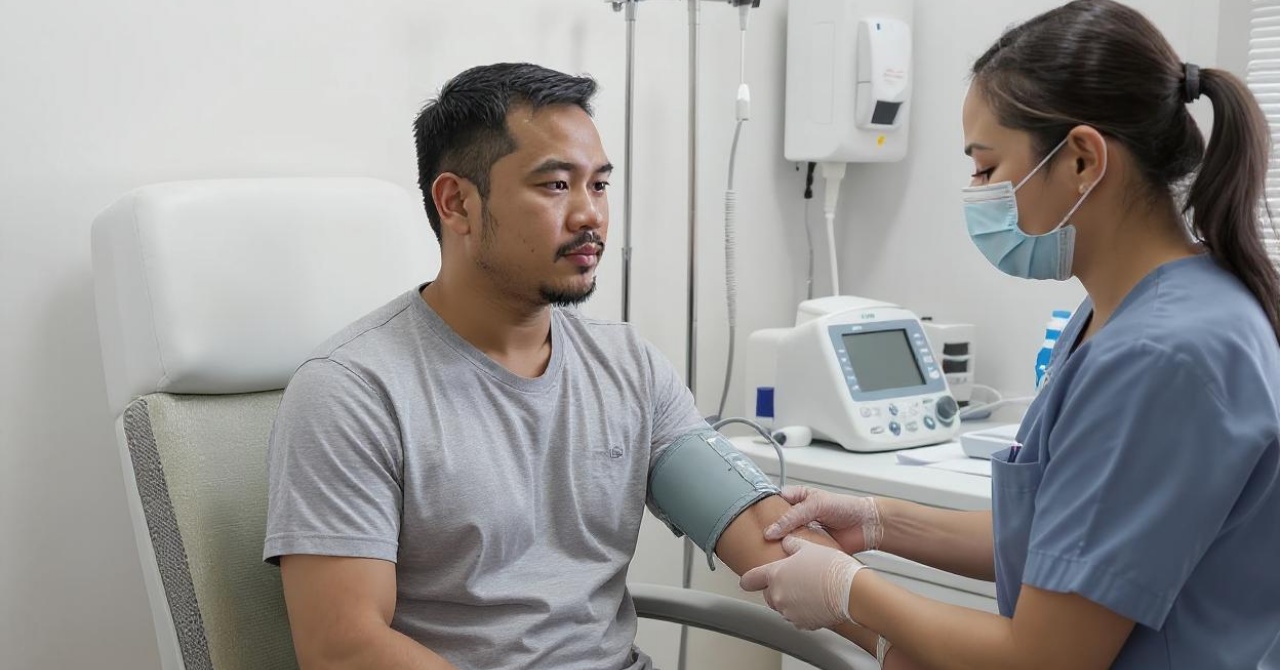One of the worst things that can happen to any OFW stationed in Taiwan is falling sick. As I learned the hard way, understanding the common health issues among OFWs in Taiwan before they strike can save time, income, and peace of mind. Below, I share updated data and first-hand tips, so you can stay healthy and keep sending good news home.

Health Snapshot of OFWs in Taiwan (2023–2024)
| Key Metric | Latest Figure | Source |
| Filipino workers in Taiwan | 151 562 total; 123 768 (81.7 %) in manufacturing | International Labour Organization, 2023 |
| Outpatient visit in past 2 years | > 50 % of 3 001 surveyed OFWs | POEA Health Survey, 2017 |
| Hospitalisation in past 2 years | 10.7 % | POEA Health Survey, 2017 |
| Suicide attempts documented | Case reports continue, 1 high-profile incident Feb 2024 | Migrant Workers’ Health Initiative, 2024 |
These numbers confirm what many of us feel on the factory floor or in private homes: long hours and heavy tasks take a toll.
Musculoskeletal Disorders (MSDs)
Lower back pain, neck strain, and wrist or shoulder injuries top clinic logs—especially for caregivers and factory staff.
- Why so common? Repetitive lifting, awkward posture, and limited rest breaks (MOHW Occupational Bulletin, 2023).
- Real-world figure: Almost four in five OFWs work in manufacturing, a sector rich in ergonomic hazards (ILO, 2023).
My fix: I asked my shift-mate to film my lifting technique; seeing my curved spine on screen made me change form fast. Five minutes of stretching per two-hour block now keeps numbness away.
Mental Health Challenges
Anxiety, depression, and adjustment disorder show higher rates than in Taiwan’s resident population (Migrant Workers’ Health Initiative, 2024).
- Homesickness, language stress, and isolation feed the spiral.
- A February 2024 suicide attempt by a migrant care worker exposed gaps in employer support and reporting.
Try this: Taiwan’s 1955 hotline offers Filipino interpreters. I rang once after a tough week; a calm voice explaining my rights changed the narrative in my head.
Sleep Disorders and Fatigue
Night shifts scramble circadian rhythms, leading to insomnia and chronic tiredness.
- Over 60 % of rotating-shift OFWs rate their sleep quality “poor” (POEA, 2017).
- Sleep loss worsens both pain and mood.
Small win: I invested in blackout curtains and set a pre-shift wind-down ritual—lukewarm shower, chamomile tea, and phone in another room. My body now knows when downtime starts, even at noon.
Respiratory and Dermatological Issues
Dust, solvent fumes, and cleaning agents raise two major risks:
- Occupational asthma or bronchitis in factories and farms
- Contact dermatitis on hands and forearms
MOHW air-quality spot checks list several plants exceeding Taiwan’s legal dust limit on peak production days (MOHW, 2023).
Protective habit: Never skip the cotton liner under rubber gloves; it soaks sweat and cuts chemical contact time.
Chronic Conditions (Hypertension & Diabetes)
Screening drives show rising numbers:
- Hypertension: 18 % of long-stay OFWs, up from 13 % in 2019 (ILO, 2023).
- Type 2 diabetes: climbing alongside fast meals heavy in salt and sugar.
What helps me: I batch-cook low-sodium adobo every Sunday. A blood-pressure check is free at most community clinics once you show your NHI card.
Practical Checklist
| Issue | Quick Relief | Preventive Step |
| MSDs | Stretch lower back before lifting | Request free ergonomic briefing from HR |
| Mental Health | Call 1955 migrant hotline | Join Filipino church or sports group |
| Sleep | Use blackout curtains & earplugs | Keep caffeine to first half of shift |
| Respiratory | Wear provided N95 mask properly | Ask supervisor for fume-hood status |
| Chronic Disease | Choose steamed over fried at canteen | Schedule annual NHI check-up |
Where to Get Help
- Taipei City Hospital Migrant Clinic – Filipino translators on duty every Wednesday.
- 1955 Ministry of Labor Hotline – Labor rights, mental-health referrals.
- HopeLine Taiwan (0800-788-995) – English counselling available.
- Ergonomic Training Workshops – Contact your broker; several NGOs now run free sessions in Tagalog.
Frequently Asked Questions
Is National Health Insurance (NHI) automatic for OFWs?
Yes. Your employer deducts the premium; keep a copy of your NHI card for all clinic visits.
Can I get mental-health counselling in English or Tagalog?
Several Taipei hospitals and NGOs partner with Filipino interpreters. The 1955 hotline gives referrals.
Do I pay extra for occupational-injury treatment?
Work-related injuries fall under Labour Insurance. File an incident report within 24 hours to avoid out-of-pocket fees.
What if my supervisor ignores safety requests?
Document with photos, then contact the local Labour Standards Office or 1955. Anonymous tips are accepted.
OFW Story: OFWs Hold the Line Amid Taiwan’s Strongest Quake
Mhalou Pereyra was resting on her day off when the ground roared beneath her—drawers flew open, metal beds rattled, and panic set in.
She didn’t wait for the shaking to stop; she and her fellow aides sprinted down three floors to carry elderly patients out, some heavier than fear itself.
They stayed outside until mid-afternoon, sweating under the sun, praying the worst was over.
Later that night, she clocked in for duty again, her body tired but her heart steady.
She now asks for kindness—not just for the wounded, but for those quietly carrying the weight of survival.
Final Thoughts
Staying healthy abroad is part strategy, part solidarity. Knowing these common health issues among OFWs in Taiwan let me swap fear for action. Watch your posture, guard your mind, and lean on the community—our shared stories are the strongest medicine.
